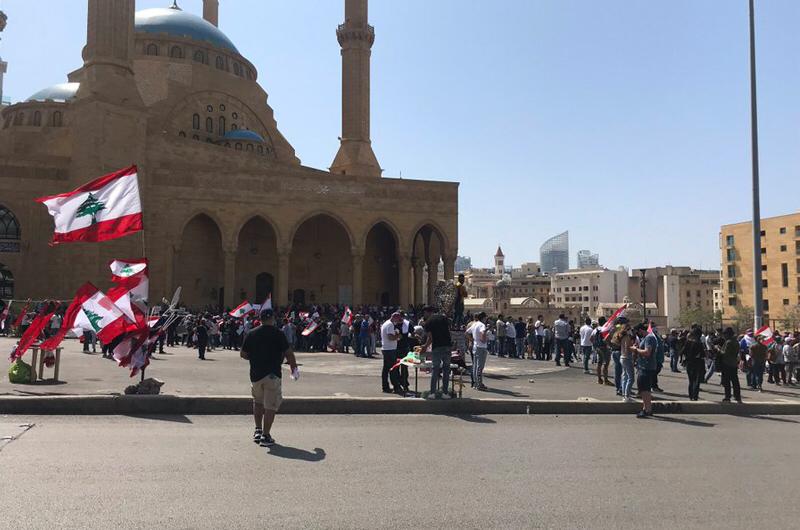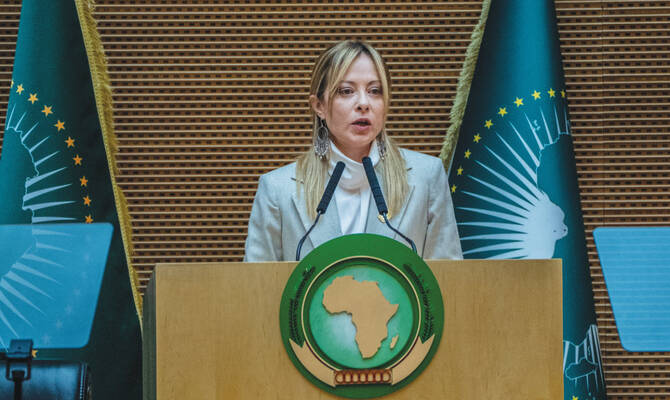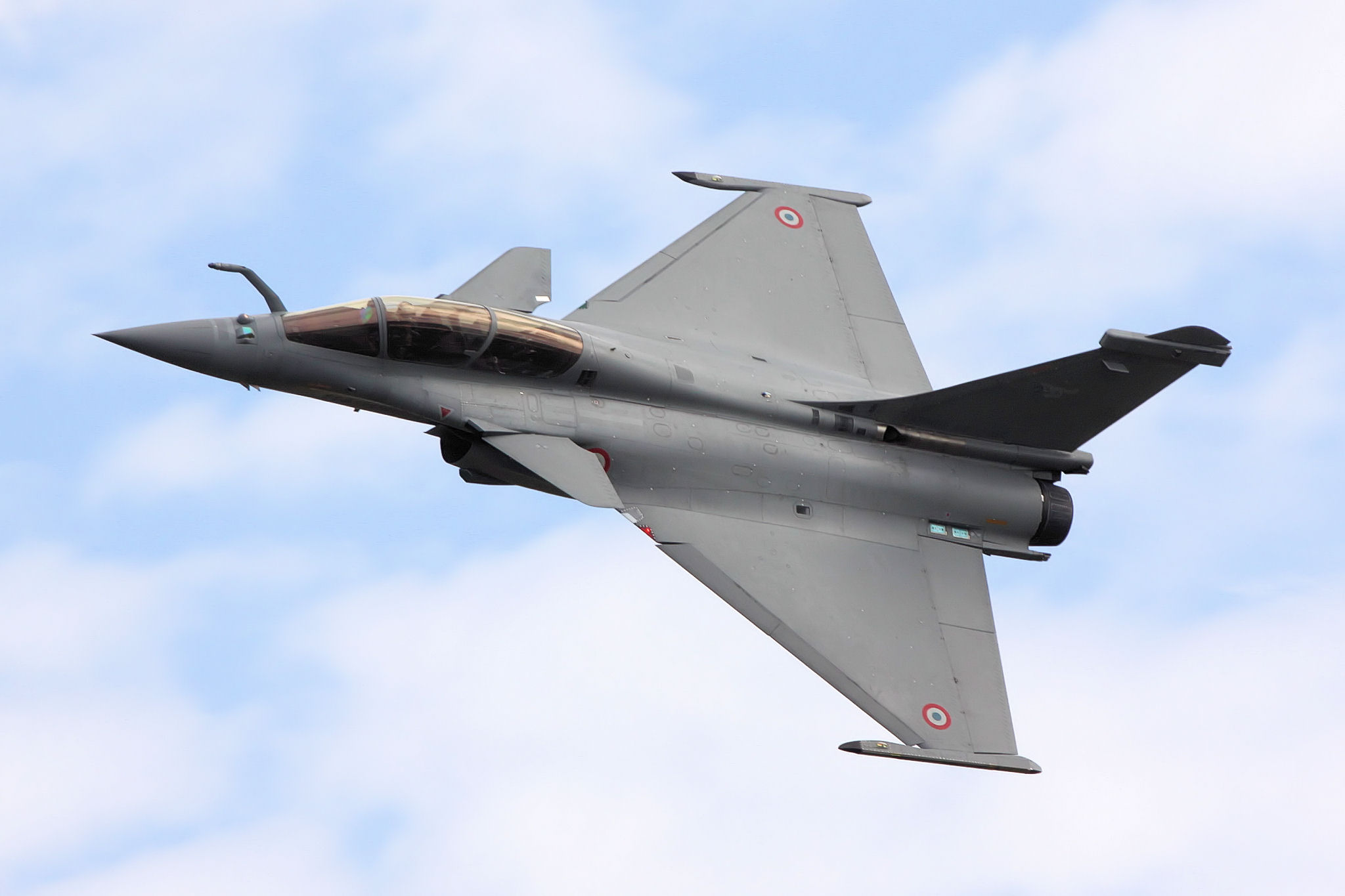Picture Credit: Anchal Vohra/Twitter
Recent protests in Beirut over government corruption and mismanagement of the economy quickly escalated into rioting and violence, which included clashes between Shi’ite Hezbollah supporters and demonstrators. Protesters poured into the streets of the Lebanese capital to decry the collapse of the economy. Moreover, there are now renewed calls from various sections of the society for the total disarmament of the powerful Hezbollah which is well represented in the government and parliament. This time Lebanon’s economy is in a real mess. Lebanon is one of the world’s most indebted countries with debt equivalent to more than 170% of its GDP and for the first time it has deferred its loan payment. Unemployment has reached 50% while some estimates predict that around 45% of people are expected to drop below the poverty line. Meanwhile, the Lebanese lira has lost more than 60% of its value. Because of this crisis people’s day to day life is being affected and standard of living has also fallen drastically. Common people are frustrated and disillusioned and now they are eager to find the factors responsible for all this. One of the most important reasons for this turmoil is Hezbollah which leads the biggest power bloc in the Lebanon parliament and has the most formidable militia.
These protests have seen participation from almost all religious sects including Christians, Druze, Sunnis, and even Shiites. Protesters mainly insist that the government address both corruption and the worst economic crisis in Lebanon since the 1975–1990 civil war. With dire economic conditions it is tempting to assume that unrest is only motivated by economic anxiety. But many protesters however, have also turned their attention towards Hezbollah’s role demanding that the Iranian-backed group forfeit its weapons to the Lebanese Armed Forces, Lebanon’s official military. Lebanese people are realising that Hezbollah has become a liability for the country and creating problems within and importing it from outside too. Let’s look at the factors which have made Hezbollah which claim itself to be a defender of Lebanon as a burden for the country.
Diplomatic Isolation– This Iranian proxy group has been militarily involved in Syria, Iraq and Yemen, further isolating Lebanon as a large number of Arab supporters turned their back on Beirut. Gulf countries that were once eager to finance Lebanon’s reconstruction and invest in its economy, have now closed their coffers. This is only because they believe that in all practical terms Hezbollah is in charge of the country.
Economic Hurdle– Hezbollah and his allies, are opposing reforms required by the International Monetary Fund (IMF) to unlock a potential multi-billion-dollar bailout package. Hezbollah opposes IMF bailout because it would grant the IMF control over certain aspects of the state, including the party’s patronage network. But Hezbollah has failed to understand that only the IMF could provide the level of funding needed to re-float the Lebanese economy, and contribute sufficient cash flows for imports of fuel, food and medicines.
Manipulation of Foreign Policy-Hezbollah’s indirect control over foreign policy has been guaranteed with the appointment of allied figures from the Free Patriotic movement (FPM). It was headed first by President Michel Aoun and more recently by Gebran Bassil since 2015. During his tenure as a foreign minister from 2014 to 2020, Bassil repeatedly took regional stances detrimental to Lebanon’s interests despite the adoption by the government of a regional self-distancing policy. In 2018, Lebanon’s foreign minister failed to attend an extraordinary Arab League meeting to discuss violations committed by Iran. Beirut’s even failed to condemn attacks on Saudi diplomatic missions in Tehran which led to the suspension in 2016 of a $3 billion aid package for the Lebanese army.
Undermining the State– Hezbollah undermines the authority of the Lebanese state now and then through use of force which it exercises because of its arsenal. For example, in May 2008, Hezbollah fighters occupied West Beirut and Mount Lebanon. In protest of then Prime Minister Fouad Siniora’s decisions to dismiss the head of the airport security apparatus, Brigadier General Wafik Choucair whose loyalty lies with Hezbollah and dismantle Hezbollah’s telecommunications network Al-Manar which is not subjected to any state regulations. Hezbollah controls sites that are off limits to Lebanese security forces and army. Its members are immune from judiciary and security agencies. Hezbollah enjoys total freedom in bringing in goods and people through Lebanese ports, border crossings and Beirut airport. No taxes paid, no questions asked and no security check done. Hezbollah has demonstrated that it is capable of preventing elections from taking place in Lebanon and imposing its own candidate. Also, literally it can shut down the government as it desires. Group believes in creation of its own parallel institutions rather than strengthening the state.
Creator of Political Instability– Hezbollah has on multiple occasions pushed Lebanon into political crisis. Hezbollah is suspected of assassinating former Prime Minister Rafik Hariri in 2005. In 2011, the group’s politicians quit the governing coalition, causing it to collapse. In November 2017, anti-Hezbollah and anti-Syrian Prime Minister Saad Hariri resigned and fled to Saudi Arabia, alleging that Hezbollah had attempted to assassinate him. Hariri returned to Lebanon later that month and rescinded his resignation. Hezbollah knows very well that in a stable political environment it can’t operate with a free hand.
For quite a while now no unified opposition force has been able to halt Hezbollah’s quest for unchallenged power. It’s just a matter of time until Hezbollah has full control over Lebanon, and by that time the country’s political leadership will be fully committed to the Islamic Republic of Iran. Hezbollah is holding the country hostage at the expense of the Lebanese people. Moreover, one cannot have rule of law or sovereignty if one group dictates its wishes and all its actions are beyond accountability. But sooner than later Hezbollah will witness a mass unrest against it as people are realising that who is the primary source of their misery. This coming mass unrest Hezbollah won’t be able to crush through its guns.
Disclaimer: The views expressed are of the author(s) and do not reflect the official policy or position of Diplomacy and Beyond Plus. The publication is not liable for the views expressed by authors.
References
2) https://www.arabnews.com/node/1686701
4) https://www.thenational.ae/opinion/hezbollah-is-much-weaker-than-it-seems-1.1028271
5) https://www.middleeastmonitor.com/20200307-hezbollah-is-holding-lebanons-economy-hostage/
7) https://www.nationalreview.com/corner/why-the-protests-in-lebanon-matter/
8) https://www.atlanticcouncil.org/blogs/menasource/lebanons-collapse-is-hezbollahs-slow-unraveling/
9) https://foreignpolicy.com/2019/11/27/lebanon-protests-hezbollah-fading-reputation/









